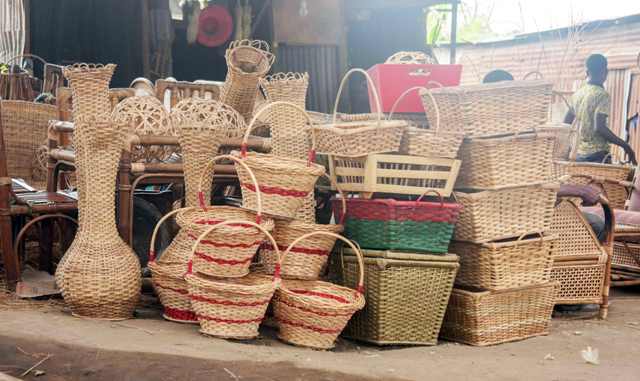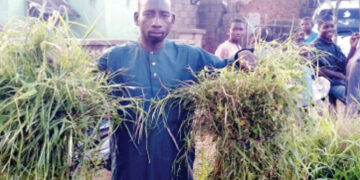Nigeria has a remarkable heritage, and one craft that is viable for both individuals and the country’s economy is cane weaving.
The cane is produced from the peeled-off bark of rattan, then cut into cane strips of uniform width and depth, referred to as ‘peels.’
Typically, a cane craftsman will use twist and weave techniques to actualise his design through artistic expression or design, such as; line, shape, form, colour, and weave a chair, settee, swing, shelf, basket, or flower vase, table, and many more.
A former vice president of the National Cane Weavers Association, who has been in the cane weaving business for over 40 years, Gabriel Oghenevwede, said, there is huge potential in the cane weaving business.
He claimed that there is a sizable market for cane-weaving goods in the country, adding that, “hotels, restaurants, government, and foreigners all use the product, and with this, we can pay bills and take care of our family.”
Training
The business is wide, and there are two sections to this business, which are; rattan furniture and the cane furniture.
For one to be in this business, he said, he or she must have spent more than six months under apprenticeship, adding that, it is important to be apprenticed because you need to know how to use a knife in the work, how to smooth the cane, and techniques to prepare the material.
Materials
The major material used in this business, according to him, is the cane itself, which is sourced from Warri in Delta State and some from the Ajah area of Lagos.
Tools
The tools are simply a hammer, file, drawknife, nails, inches, a pair of gloves, a saw, and a work cloth. The materials are available locally and are affordable. All an interested person needs to do is undergo a six-month or longer apprenticeship with one of the known hands in the business.
Profitability/ Initial Capital
Gabriel claimed that the venture is profitable and that the startup costs range from N300,000 to N500,000.
“People from all backgrounds have been attracted to our craft. A particular basket is sold at the rate of N40,000, and more than 10 units have been ordered and will be shipped outside of Nigeria,” he said.
He claimed that, although the way they make money is not set up in the same way that people who work for salaries do, he has been able to raise a family, pay his bills, and take care of his family thanks to this business.
Challenges
To him, “raw materials are one of our major challenges because the source is becoming shrink daily and we only get it from Delta and Lagos states. Sometimes, it could take us three to four months before getting materials.
Also, the work is time-consuming, he said, a particular basket can take up to three to four days to be completed.





